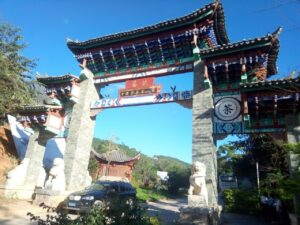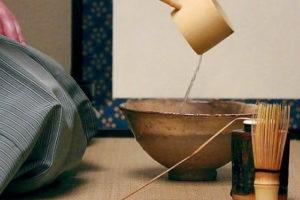In the annals of the Celestial Empire, the 19th century is marked by the disastrous Opium Wars. At that time, this confrontation was a completely new type of conflict. It was not the conquest of territories, but markets that drove the struggle.
In the 19th century, China was already doing a winning business with European countries. Europeans of different walks of life were tightly “hooked” on Chinese goods. TeaIn the 19th century, China was already doing a profitable business in European countries, and Europeans from various walks of life were heavily “hooked” on Chinese goods.
The Western world was embraced by the fashion for the East – “Orientalism”. The words “made in China” were synonymous with quality. However, England, the foremost trading and maritime power of the time, was not satisfied with the trade imbalance. The Qing dynasty’s policy was to keep the Chinese out of the hands of foreigners. Only one port (in Guangdong Province) was opened to European merchants in China. They were also forbidden to live in China, open consulates, or even learn Chinese. Europeans were not allowed to sell their goods in China. China dictated its own terms, prices and set customs rates most favorable to it.
Emperor Qianlong of China wrote to King George III of England:“We have everything we could wish for, and we do not need the goods of barbarians”.
England needed a product that would succeed in the markets of China. Then the British decided that they could subdue the Celestial Empire with… “(even though China had a total ban on the trade and use of opium).
In Bengal, India, opium poppies had long been cultivated and the narcotic substance used for ritual purposes. The British became familiar with the harmful effects of opium in 1683, when it was brought to Britain by the East India Company’s tea clippers.
Britain, which controlled India, decided to “kill two birds with one stone” at the same time: to establish financial injections into its colony and treasury, as well as to “enter” the Chinese market.
The East India Company had a monopoly on the purchase of Bengal opium since 1773. After 2 years the company’s emissaries started illegal opium trade in China.
British East India Company organized “Chinese Inland Mission”, the purpose of which was to propagate opium smoking among Chinese peasants. Opium distilleries began to appear like mushrooms all over the country.In Shanghai alone, their number increased from 87 to 663 between 1791 and 1794. This harmful trend for China had disastrous results. Opium use affected the labor force and intellectual level of the population.

In 1775, the East India Company sold only 1.5 tons of opium. By 1830, it had already increased its annual sales to 1,500 tons. This drug traffic existed with the full approval of the British government, which by 1833 had achieved what it wanted: a positive balance of trade with China at the expense of drugs.
Millions of Chinese of different classes, including military officers, officials and aristocrats, became addicted to opium. The drug became part of the everyday life of the Chinese. People abandoned their work, whole villages were drugged with it. There was high competition among opium dealers. And the price of the drug was only falling. To combat the drug trade in Guangdong Province was sent to the imperial auditor Lin Jiexiu. On March 10, 1839, the seizure of opium began in Guangzhou.
The merchant ships that tried to escape with the goods were intercepted and the foreign merchants were detained. For 22 days, Lin Zesuyu’s detachment burned and drowned the seized opium. Lin Zesuyu offered traders to compensate for the lost goods with tea, which was highly valued in Europe. But only those who refused to trade opium in the future. Many agreed, but such demands were against the interests of the British Empire.

In addition to the opium mafia, Lin Jiexiu had to confront the court parties. The Chinese nobility surrounding the emperor was divided into two camps. One received huge profits from the opium trade and were interested in the resignation of Tsesuyu from office. They demanded from the emperor to cancel the “unmerciful” laws. Others, who were radical and conservative, sought to expel all “white barbarians” and completely close the empire to foreigners.
In December 1839, China was declared completely closed to foreigners – all British traders were removed from Guangzhou. Britain saw the “closing of the market” as a pretext for war.In the spring of 1840, the British Empire declared war on China. An armada of 40 ships with 4,000 soldiers on board sailed from the coast of India to China.The Celestial Empire’s military force at that time consisted of an 800,000-strong army. But the army was spread across the country and the warriors’ fitness was undermined by the use of opium.
On the eve of the battle, British merchants hurriedly sent new shipments of the drug to the locations where Chinese military units were stationed. They sold opium for almost nothing. As a result, the entire army, even the most elite Manchurian detachments could not give a proper repulse.The British army easily took several major seaports, including Guangzhou and Shanghai. In the summer of 1840, the British approached Tianjin, which is in direct neighborhood with Beijing, the capital of the empire. China was forced to capitulate. In 1842 a peace treaty was concluded.

The emperor restored trade with England and interrupted the fight against opium. Lin Jiexiu was removed from office and sent into exile.
In the summer of 1842 they concluded the humiliating Treaty of Nanking – the first of a number of so-called “unequal” treaties that tore China apart and gave foreign merchants and military men the full right to rule in the Celestial Empire.
Five ports were opened to England: Guangzhou, Ningbo, Xiamen, Fujou and Shanghai. China pledged to pay 21 million yuan in silver. In addition, the peace treaty contained provisions on consular proceedings – foreigners and the Chinese working for them were excluded from Chinese laws. In fact, this gave them absolute full rights in the territory of China.
Now the British could settle in Guangzhou, and an official British representative office was opened in the city. Soon France and the United States received the same concessions through diplomacy or force. But the British still had a number of privileges and the status of a “most-favored nation for trade”. But most importantly, after the First Opium War, Hong Kong came under British jurisdiction, and for many years it was known as the capital of the drug trade.



